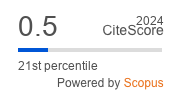Research Programs of I. Lakatos in the Context of the Information Society
Abstract
The article attempts to describe the concept of development and change of research programs of the hungarian scientist Imre Lakatos, to defi ne features of his scientifi c methodology and his views on the history and philosophy of science in the context of the information society.
About the Authors
O. E. BaksanskyRussian Federation
Oleg Evgenievich Baksansky, Doctor of philosophy, leading researcher of the Institute of philosophy (RAS), prof. of the chair of theory and technology of learning in higher school
2/10 B. Pirogovskaya str., Moscow, 119991
tel.: 8 (499) 248–06–29
I. A. Emelin
Russian Federation
PhD, lecturer of the School of young philologist
References
1. http://www.nsu.ru/classics/pythagoras/Lacatos. 1. Koetsier T. Lakatos Philosophy of Mathematics. Amsterdam. 1991.
2. Lakatos I. Proofs and Refutations. The Logik of Mathematical Discovery. Cambridge. N.Y. 1976.
3. Newton-Smith W.H. The Rationality of Science. Boston. 1981. 1. The Problem of Inductive Logic. L. 1968.
4. Бажанов В.А. Диалектические основания творчества И. Лакатоса // Вопросы философии. 2008; 9. [Bazhanov V.A. Dialectical bases of I. Lakatos philosophy // Voprosy fi losofi i. 2008; 9.]
5. Бажанов В.А. Имре Лакатос и философия науки в СССР // Эпистемология и философия науки. 2009; 1. [Bazhanov V.A. Imre Lakatos and the philosophy of science in the USSR // Epistemologiya i fi losofi ya nauki. 2009; 1.]
6. Бажанов В.А. Переосмысливая И. Лакатоса заново // Вопросы философии. 2009; 8: 92–97. [Bazhanov V.A. Rethinking I. Lakatos again // Voprosy fi losofi i. 2009; 8: 92–97.]
7. Баксанский О.Е. Когнитивные репрезентации: Обыденные, социальные, научные. М. 2009. [Baksansky O.E. Cognitive representation: ordinary, social, scientifi c. M. 2009.]
8. Баксанский О.Е. Физики и математики: Анализ основания взаимоотношения. М. 2009. [Baksansky O.E. Physics and Mathematics: Analysis of base relations. M. 2009.]
9. Баксанский О.Е., Коржуев А.В. Философско-методологические сюжеты научных революций в естествознании в обучении физики в медицинских вузах // Сеченовский вестник. 2015; 2(20): 60–67. (в печати). [Baksansky O.E., Korzhuev A.V. Philosophical and methodological aspects of scientifi c revolutions in science in physics teaching in medical schools // Sechenovsky vestnik. 2015; 2(20): 60–67. (in print)]
10. Бергер П., Лукман Т. Социальное конструирование реальности. Трактат по социологии знания. М. «Медиум». 1995. [Berger P., Lukman T. Social Construction of Reality. A treatise on the sociology of knowledge. M. «Medium». 1995.]
11. Вихалемм Р.Л. Понятие «логика развития науки» и некоторые методологические вопросы анализа истории науки // Философские науки. 1977; 5: 105–113. [Vikhalemm R.L. The concept of «logic of science» and some methodological issues on the analysis of science // Filosofskie nauki. 1977; 5: 105–113.]
12. Глинский Б.А., Баксанский О.Е. Моделирование и когнитивные репрезентации. М. «Альтекс». 2000. [Glinsky B.A., Baksansky O.E. Modeling and cognitive representation. M. «Alteks». 2000.]
13. Исследовательские программы в современной науке. Новосибирск. «Наука». 1987. [Research programs in modern science. Novosibirsk. «Nauka». 1987.]
14. Кастельс М. Информационная эпоха. Экономика, общество и культура. М. ВШЭ. 2000. [Castells M. The Information Age. Economy, Society and Culture. M. HSE. 2000.]
15. Коллинз Р. Социология философий. М. «Новый хронограф». 2002. [Collins R. Sociology of Philosophies. M. «Novy khronograf». 2002.]
16. Лакатос И. Фальсификация и методология исследовательских программ. М. 1995. 423 с. [Lakatos I. Falsifi cation and the methodology of research programs. M. 1995. 423 p.]
17. Мак-Люэн М. Галактика Гуттенберга: Сотворение человека печатной культуры. Киев. «Ника-Центр». 2003. [McLuhan M. Gutenberg Galaxy: The Creation of Man print culture. Kiev. «Nika-Tsentr». 2003.]
18. Структура и развитие науки. М. 1978. [The structure and development of science. M. 1978.]






































